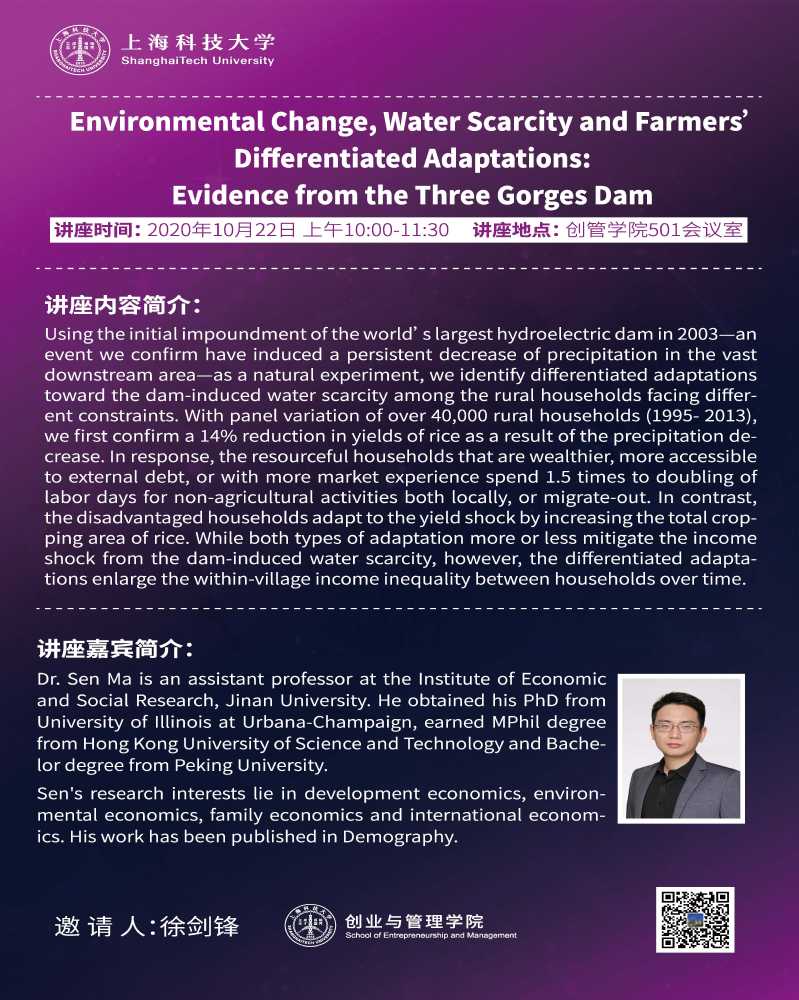Date & Time:Oct. 22, 2020 10:00- 11:30am
Venue:SEM501 Meeting Room
Speaker:Sen Ma (Jinan University, ISER)
Abstract:
Using the initial impoundment of the world’s largest hydroelectric dam in 2003—an event we confirm have induced a persistent decrease of precipitation in the vast downstream area—as a natural experiment, we identify differentiated adaptations toward the dam-induced water scarcity among the rural households facing different constraints. With panel variation of over 40,000 rural households (1995- 2013), we first confirm a 14% reduction in yields of rice as a result of the precipitation decrease. In response, the resourceful households that are wealthier, more accessible to external debt, or with more market experience spend 1.5 times to doubling of labor days for non-agricultural activities both locally, or migrate-out. In contrast, the disadvantaged households adapt to the yield shock by increasing the total cropping area of rice. While both types of adaptation more or less mitigate the income shock from the dam-induced water scarcity, however, the differentiated adaptations enlarge the within-village income inequality between households over time.
Spkear Biography:
Dr. Sen Ma is an assistant professor at the Institute of Economic and Social Research, Jinan University. He obtained his PhD from University of Illinois at Urbana-Champaign, earned MPhil degree from Hong Kong University of Science and Technology and Bachelor degree from Peking University.
Sen's research interests lie in development economics, environmental economics, family economics and international economics. His work has been published in Demography.





